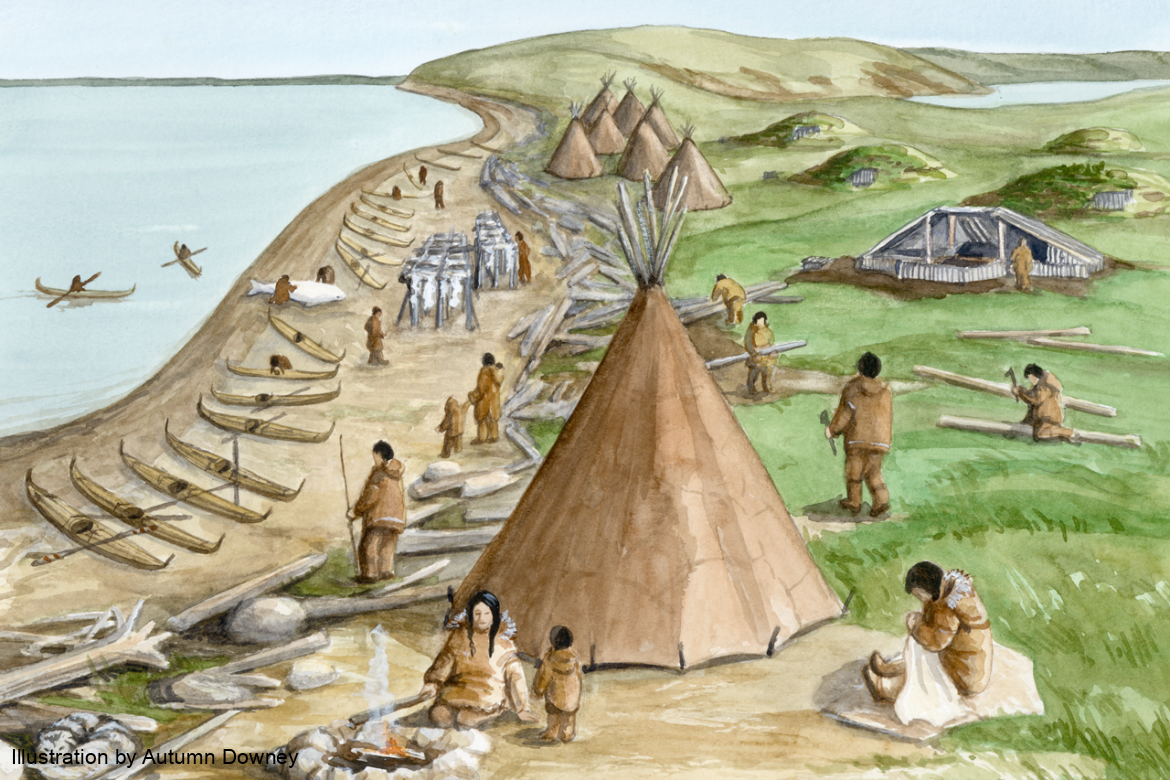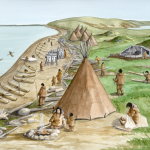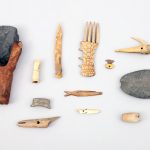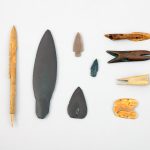500 Years Ago
Kuukpak
The Kuukpangmiut were the people of Kuukpak, a 500-year-old village at the mouth of the Mackenzie River. Kuukpak means Big River in Inuvialuktun.
The Mackenzie River is the longest river in Canada and is still a vital water route for all adjacent communities. Kuukpak existed as a village for hundreds of years. It was once a village of more than 20 sod houses and several hundred Kuukpangmiut.
The Kuukpangmiut made their home at the mouth of the Mackenzie River, where it empties into Kugmallit Bay on the way to the Beaufort Sea. This area provided them with food, water, and shelter. Access to the mainland provided a vast area to hunt caribou. The rivers and creeks contained many fish varieties, and most importantly, the ocean provided access to beluga whales. The mouth of the Mackenzie River is an estuary where beluga whales, or qilalukkat, gather in summer. Belugas were harvested, then preserved and eaten throughout the year.
Kuukpak was also an excellent place to settle because of the abundance of driftwood that floated down the Mackenzie River. The driftwood provided the village with a source of fuel and material for making tools, equipment, and shelters like the sod house, known as an igluryuaq.
The first strangers, Tan’ngit, arrived in the area in 1826 when Captain John Franklin arrived on his Mackenzie River expedition. Whalers, traders, missionaries and other visitors became more numerous and brought diseases to Kuukpak and many other villages in the area. Kuukpak was eventually abandoned by the 1900s as populations diminished and relocated. Log-covered graves dot the hills throughout the surrounding area, showing evidence of a tragic period of history.
The Prince of Wales Northern Heritage Centre, working with Inuvialuit Elders, diligently records and shares knowledge on the Kuukpak archeological site. Kuukpak is an essential record of Kuukpangmiut life buried in the ground and beaches along the Beaufort Sea. The shifting waters of the Mackenzie Delta move silt and cliffs over older village sites. The work of the archeological team for eight seasons supports the knowledge, skills and tools passed on from the ancestors to the Inuvialuit of the Mackenzie Delta.



